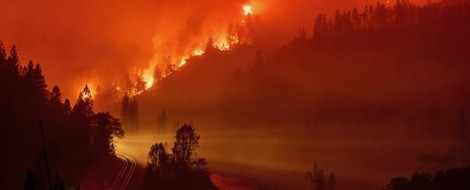Your podcast discovery platform
Curious minds select the most fascinating podcasts from around the world. Discover hand-piqd audio recommendations on your favorite topics.

piqer for: Climate and Environment Global finds Globalization and politics
I'm a freelance journalist, currently based in Madrid. I used to be a News Producer at CNBC in London before, but I thought a little bit more sun might do me good. Now I write for several news organizations, covering a range of topics, from Spanish politics and human rights for Deutsche Welle to climate change for La Marea.
Podcast: Climate Chronicle Of A Summer Full Of Weather Extremes
The BBC has historically been one of the world's most respected journalistic outlets. The British public broadcaster has managed to prioritize independence, investigative spirit and even its own trademark 'BBC English'. However, the corporation had one Achilles' heel: Climate change.
Because its stylebook was dominated by unnegotiable balance, the BBC saw itself compelled to include climate denialists in its panels and shows. In an attempt to show the alleged "two sides of the story", it became a platform for misinformation. The problem here, and this has been proven beyond any reasonable doubt, is that science has settled and the two sides of the story are somewhere else now. The BBC took a while to notice, and it has damaged its reputation. Until now. The broadcaster has recently acknowledged its error and published a guide for better climate coverage.
And it seems this has worked wonders immediately. Not three weeks after the change of course and we get this excellent podcast, with a dream team line-up of scientists (Michael Mann, of the World Weather Attribution Project) to analyze the shocking weather extremes of 2018. Using the global "wave of heatwaves" that hit most of the Northern hemisphere in July as a case study, anchor Roland Pease looks for answers on the link between climate change and weather, which is often a tricky question for non-specialist media.
The podcast is an interesting piece for anyone who's not an expert on climate change. The guests do a great job at outlining the basics of climate science, providing the listener with the main tools to understand many other stories in the press.
But this is also an example of great journalism. The anchor asks the right questions and keeps a very good pace. Sound effects are masterfully used, making this an engaging piece.
To give one criticism: I keep missing the inequality angle, which, for me, is the real climate change story. However, the BBC is taking steps in the right direction, and here's proof.
